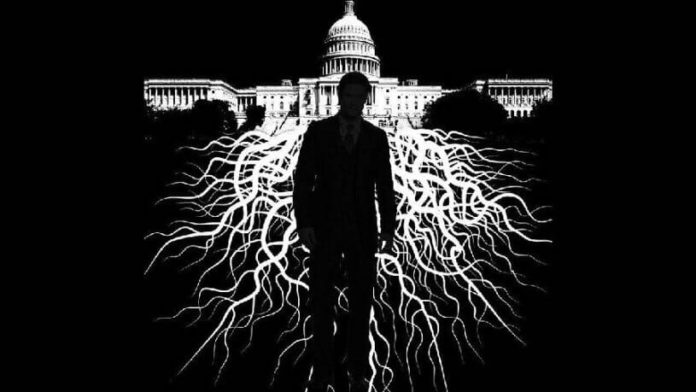Newly disclosed documents obtained by the New York Times reveal secret US plans for ‘apocalyptic’ scenarios when a president may activate wartime powers.
The documents – known as presidential emergency action documents – were provided to the New York Times by the Brennan Center for Justice after it gathered the materials from the Bush presidential library under the Freedom of Information Act.
Only 500 pages were disclosed to the Brennan Center for Justice – 6,000 classified pages were withheld.
“The newly disclosed documents show that there were 48 of the directives when the Bush administration took office; by 2008, that number had grown to 56. Vice President Dick Cheney’s office was involved in reviewing and “clearing” the orders. The documents do not indicate any consultation with Congress.” The Times reported.
“Several of the files, provided to The New York Times by the Brennan Center for Justice, show that the Bush-era effort partly focused on a law that permits the president to take over or shut down communications networks in wartime. That suggests the government may have developed or revised such an order in light of the explosive growth in the 1990s of the consumer internet.” The Times reported.
More from The New York Times:
Newly disclosed documents have shed a crack of light on secret executive branch plans for apocalyptic scenarios — like the aftermath of a nuclear attack — when the president may activate wartime powers for national security emergencies.
Until now, public knowledge of what the government put into those classified directives, which invoke emergency and wartime powers granted by Congress or otherwise claimed by presidents, has been limited to declassified descriptions of those developed in the early Cold War. In that era, they included steps like imposing martial law, rounding up people deemed dangerous and censoring news from abroad.
It has not been clear what is in the modern directives — known as presidential emergency action documents — because under administrations of both parties, none have been made public or shown to Congress. But the newly disclosed documents, which relate to the George W. Bush administration’s efforts to revise the draft orders after the attacks of Sept. 11, 2001, offer clues.
Even though it is unclear how the directives have evolved since the later stages of the Cold War, Ms. Goitein said they have likely expanded to include other scenarios beyond a devastating nuclear attack. The documents show that later versions extended from one category to seven, although their topics remain secret, and fall within the jurisdiction of agencies with different areas of focus.
Read the full report by the New York Times here.



